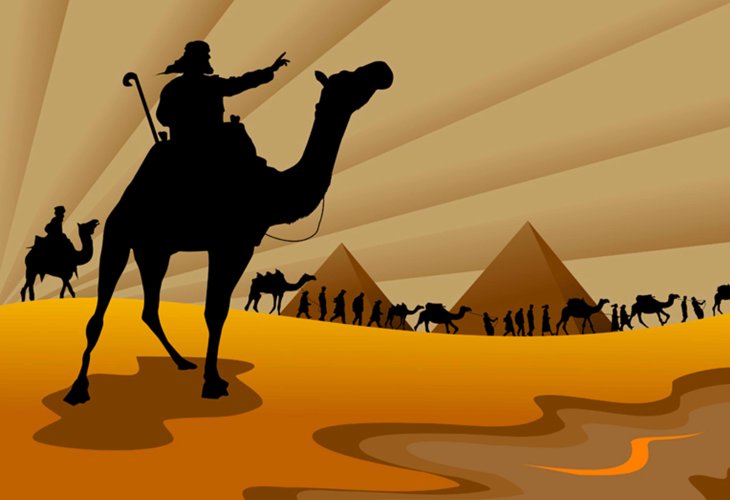Faith
Divine Justice and the Punishment of Egypt: Insights from the Exodus
How the Exodus reveals God’s wisdom, why the Egyptians were held accountable, and what this timeless story teaches us today
 (Photo: shutterstock)
(Photo: shutterstock)One of the most striking and emotional parts of the Passover Haggadah is the description of the punishment of the Egyptians. For those who actually left Egypt, who personally endured the pain and hardship of slavery, it was necessary to see this, as the fear of bondage would not have been broken without “Israel saw the Egyptians dead on the seashore.” But why more than 3,000 years later, do we still need to speak of blood, fire, and pillars of smoke?
Maimonides (Rambam) asks, why were the Egyptians punished at all? After all, the slavery was decreed by God Himself many years earlier and foretold to Abraham at the Covenant Between the Pieces: “Your offspring will be strangers in a land not theirs; they will enslave and oppress them.”
The Rambam’s Answer
Rambam explains that although slavery was decreed, the Egyptians did not act out of a sense of fulfilling prophecy or divine will. They acted out of cruelty, selfishness, and hatred. They exploited the Israelites, oppressed them, and degraded them. For that, they deserved punishment.
Furthermore, each Egyptian individually had free choice and were not forced to be cruel to the Israelites. Their behavior was their own choice, and so was their punishment.
This teaches us something profound. God, in His foreknowledge, set the stage: when Israel descended into Egypt, even if they came peacefully, the very nature of Egyptian society would bring about their enslavement and suffering. Likewise, the punishment was also preordained. The Sages teach that God made ten conditions with creation, one of which was the splitting of the Red Sea. It was embedded in the fabric of nature from the moment of creation.
Thus, God aligned everything: Israel — destined for bondage, Egypt — driven by their own corrupt nature, and the Red Sea — destined to split at its appointed time.
The Interwoven Web of Events
When we look at our own world, we see that no event happens in isolation. Every action has ripple effects. If a person falls ill, their family suffers, their workplace faces difficulties, and their doctor is involved. Nothing happens in a vacuum. Every consequence spawns further consequences, sometimes circling back in ways we cannot imagine.
This applies not only to people but also to nature. A cigarette butt tossed out of a window may startle a butterfly, which alters the path of a bird, and so on. This is what we call the “butterfly effect” — tiny actions triggering chains of events that can even lead to something as powerful as an earthquake.
God does not only calculate what each person deserves, but also the billions of interconnected outcomes of every single act. If He revealed to us even just the reasons behind what touches our own lives, we would already glimpse an infinite wisdom — like a vast, unending Sudoku puzzle, whose goal is to benefit us and perfect the world.
Revelation at the Exodus
This divine wisdom was revealed to Israel for the first time during the Exodus when all the seemingly separate pieces came together in one great revelation: The Israelites received what they were due, Egypt received what they deserved, and nature itself fulfilled its role.
The splitting of the sea was not only a miracle, but it was the unveiling of divine orchestration. For our nation, it was a firsthand encounter with the infinite wisdom of God, intended to serve as a lesson for all generations: even when we do not see or understand, there is always Someone above, orchestrating it all.

